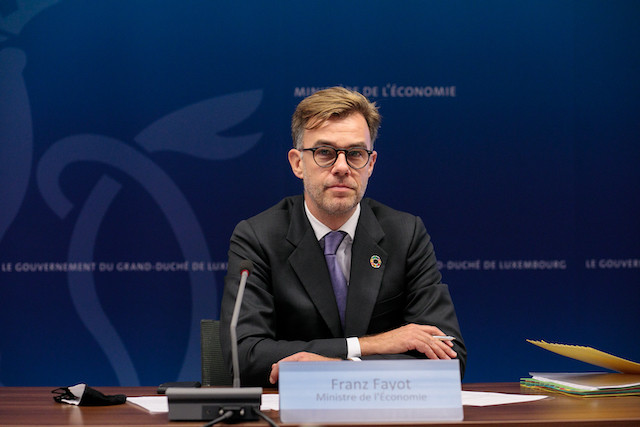The new “Luxembourg Strategy” group comes after a series of setbacks suffered by the ministry. Yoghurt maker Fage pulled out of plans to build a factory in Luxembourg after hefty opposition by residents and politicians over environmental concerns. Previously, a rockwool factory was shot down by local communes because of pollution worries.
Both projects predated the arrival of Franz Fayot as economy minister in February, succeeding Etienne Schneider who left government.
“We must learn lessons from the crisis situation and give impetus for a more sustainable economy,” Fayot said in a statement published on Monday. “Within the economy ministry, ‘Luxembourg Strategy’ is our tool to accompany the emergency of a more resilient, sustainable and competitive economy through strategic analysis and prospective work.”
The strategy group will include the Observatoire de la compétitivité--an economic monitoring group--as well as trade unions and business and industry representatives. The group will be led by Serge Allegrezza, the director of national statistics office Statec.
Among its missions, the group will analyse global economic trends and their potential impact on Luxembourg, integrating social and environmental criteria into the country’s economic transition.
It will also review existing strategies, for example in the areas of diversifying the economy, data-driven innovation and promoting Luxembourg abroad to assess their coherence and how they work together.
The new group would help pave the way for recovery after the coronavirus pandemic, Fayot said. “Helping companies overcome the ongoing health and economic crisis is the absolute priority at the moment and in the months to come,” he said. “But it is also important to actively prepare the post-covid era.”
The new unit doesn’t mark the first time that Luxembourg invested resources to future-proof its economy.
The government in 2016 had presented the so-called Rifkin plan on Luxembourg’s third industrial revolution. The cabinet under prime minister Xavier Bettel at the time identified nine priorities for policymakers, including promoting circular economy principles, boosting e-mobility, advancing sustainable finance and investing in high-performance computing.
